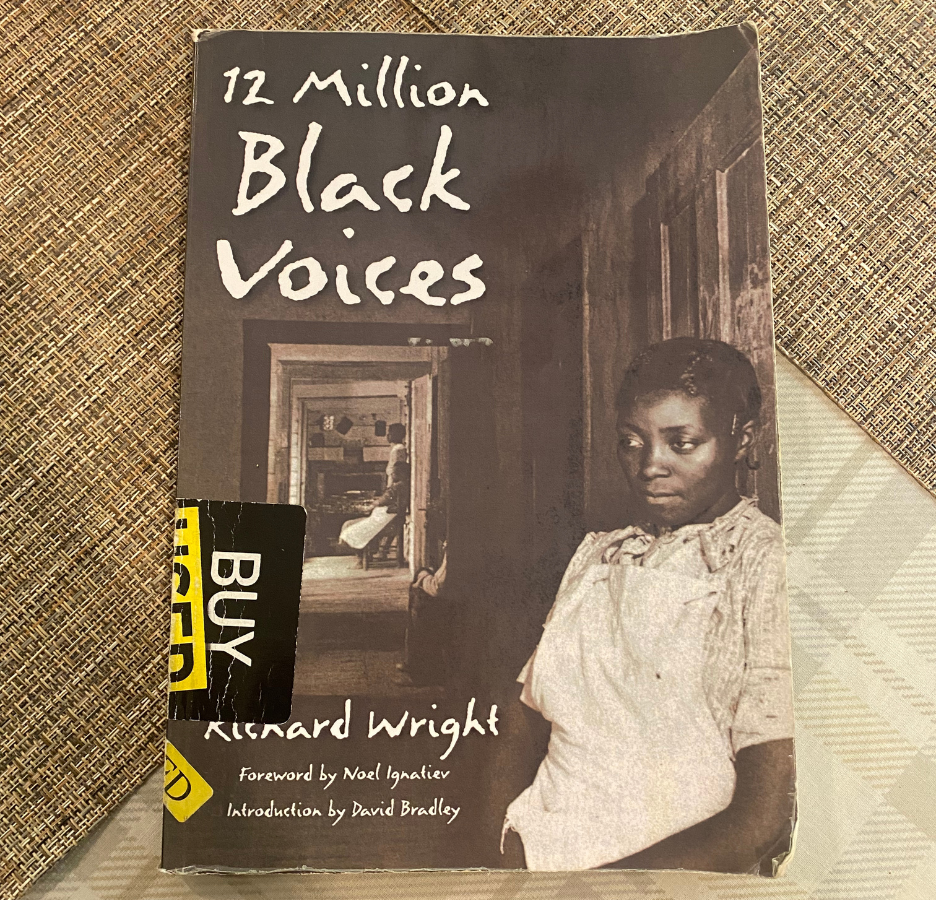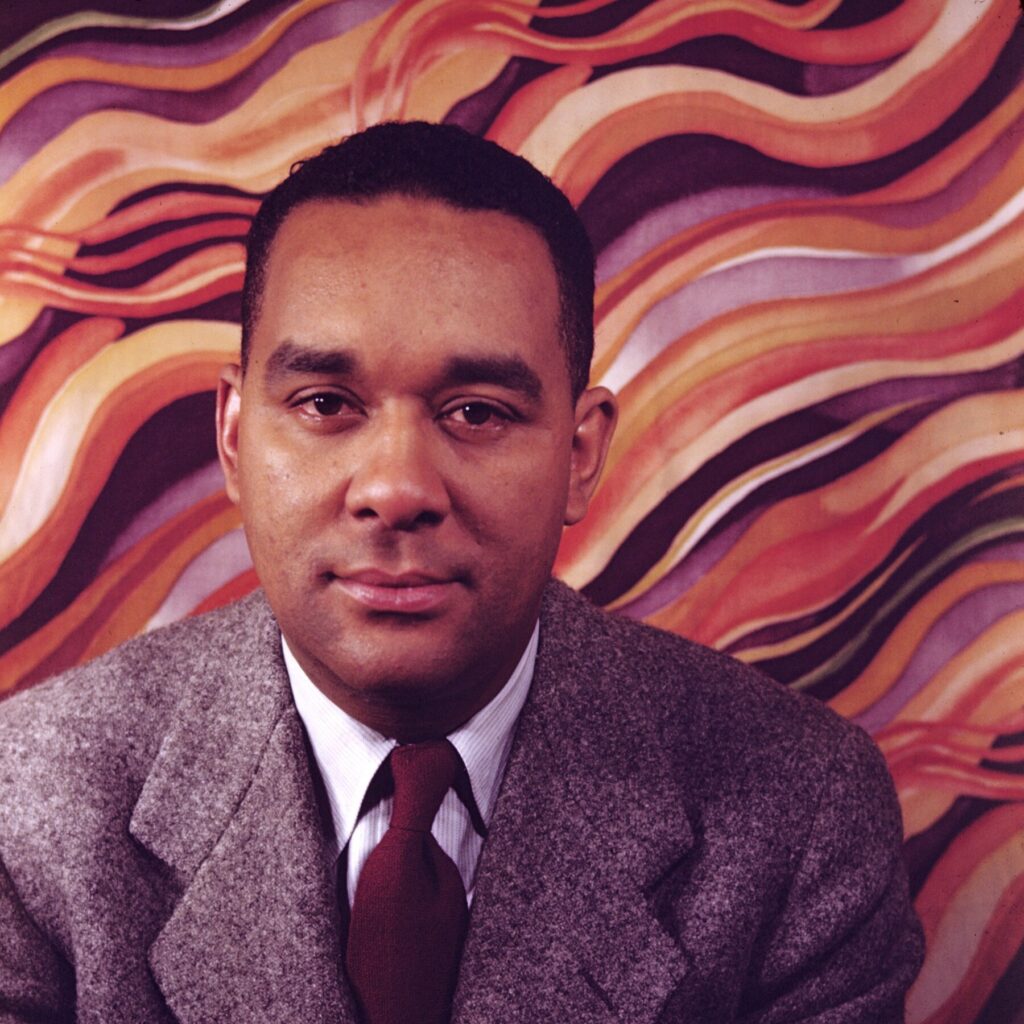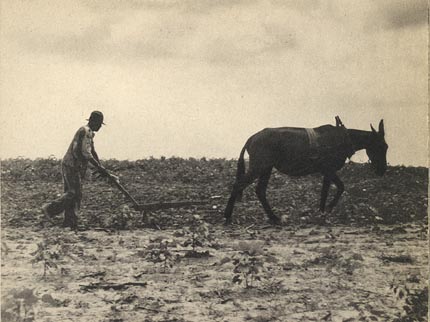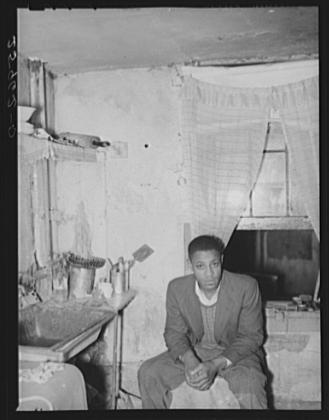
“Among all the works of Richard Wright, 12 Million Black Voices stands out as a work of poetry, of passion, of lyricism, and of love.” – David Bradley

“Richard Wright was a powerful African-American author of novels, short stories and non-fiction. Much of his literature concerned racial themes whose work helped redefine discussions of race relations in America in the mid-20th century.”
12 Million Black Voices is a romantic prose on African-American life spanning from the first drop off in the plantations of the South and Southeast, to the great migration of the concrete jungles in the North and Northwest.
12 Million Black Voices more than anything, speaks to the progression of black life through the foundational building of the United States of America. The book begins by briefly speaking on the life of enslaved Africans in America. From the harsh conditions that were endured during the middle passage through the first generations of enslaved beings. “Each day when you see us black folk upon the dusty land of the farms or upon the hard pavement of the city streets, you usually take us for granted and think you know us, but our history is far stranger than you suspect, and we are not what we seem. Our outward guise still carries the old familiar aspect which three hundred years of oppression in America have given us, but beneath the garb of the black laborer, the black cook, and the black elevator operator lies and uneasily tied knot of pain and hope whose snarled strands converge from many points of time and space.”

The prose continues as Wright details life for those who became the inheritors of slavery. Born and consequently raised in this new world order, void of the capability to create our lives as we once had, forced to adapt to circumstances unbefitting of the least and most cruel among us- Wright explores the various ways inheritors overcame the dreary mood from which there seemed to be no escape. “The word ‘negro,’ the term by which, orally or in print, we black folk in the United States are usually designated, is not really a name at all nor a description, but a psychological island whose objective form is the most unanimous fiat in all American history.”
Adaptability is the overarching theme of this work by Wright. He talks about life as day laborers and sharecroppers post abolition. The minimal access to viable resources, the unfair contract conditions being forced onto men, women, and children finally deemed free to live in a society built upon the backs of their parents and their parents’ parents. Wright speaks on the evolution of the reign of Queen Cotton to the industrial revolution.
A scanty promise of freedom in the North bore the great migration from Southern states to North and Northwest states. Cities such as Chicago, Indianapolis, Cleveland, Detroit, and New York saw thousands if not millions of black agriculturalists flee the subpar conditions of the South with hope to create a better life. Instead they were met with sparse opportunity as they competed with European immigrants for factory work, combated discriminatory landlords or “bosses of the buildings” as Wright referred to them for quality living conditions, and still battling blatant racism and disdain for the very being whose tumultuous means birthed substantial ends.

In addition, what makes 12 Million Black Voices by Richard Wright such a pleasing ballad are the songs of hope and passion woven throughout the tales of woe and worry. “For the most part our delicate families are held together by love, sympathy […]. That is why we black folk laugh and sing when we are alone together. There is nothing- no ownership or lust for power- that stands between us and our kin. And we reckon kin not as others do, but down to the ninth and tenth cousin. […] Because our eyes are not blinded by the hunger for possessions, we are a tolerant folk.” Wright speaks of the community that music and dance provides. Community that those who seek to outcast blacks, so deeply beg to be a part. Wright speaks on the Spiritual welfare that congregation in the Church brings. Days of peace and sanctuary in a heaven untainted by the evils known at the hands of white men. And Wright lastly speaks to the ever progress of the black plight.
“We black folk, our history and our present being, are a mirror of all the manifold experiences of America. What we want, what we represent, what we endure is what America IS. If we black folk perish, America will perish. If America has forgotten her past, then let her look into the mirror of our consciousness and she will see the living past living in the present, for our memories go back through our black folk of today […], and through the tales of slavery told by our black grandparents, to the time when none of us, black or white, lived in this fertile land.”
Richard Wright
12 Million Black Voices by Richard Wright stands out from other informative reads as a work of liturgical art. His descriptive and lyrical verbiage paints a vivid and undeniable picture of fact, passion, purpose, and understanding. This a quick yet impactful read that I would suggest to all people!


![“You Are a Badass[…]” by Jen Sincero](https://heavenlycloudandco.com/wp-content/uploads/2022/01/8-1.png)



